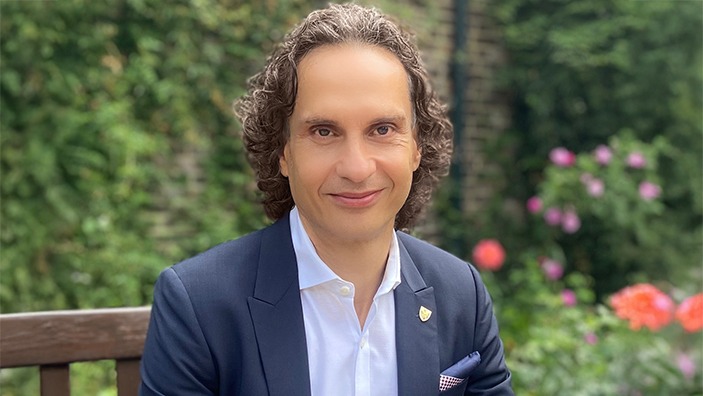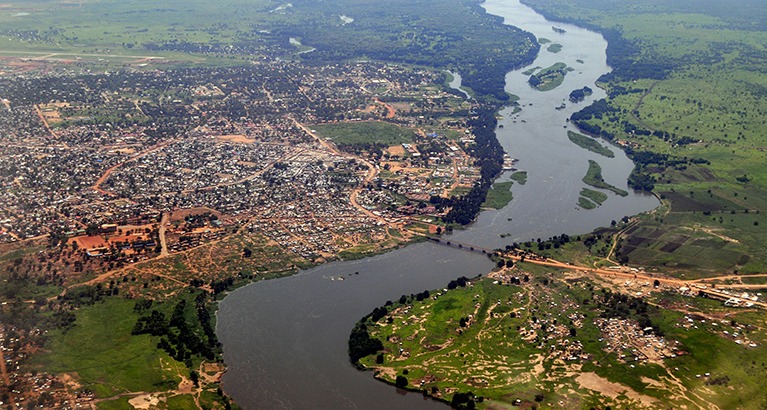Every organisation and individual employs what scholars term ‘frames’, or the strategy that enables firms or people to promote specific interpretations of events and thus focus issues in a way that best suits their interests. In the political context, this is often unflatteringly referred to as spin, yet the practice of interpreting a given set of facts in a certain way is an engrained part of discourse public and private.
Academics have long studied how framing has been used successfully by actors to enable controversial ideas to gain acceptance and for social movements to gain momentum – for example, the prolife and prochoice or same-sex marriage movements, and this often results from people selecting frames that are already available, owing to a country’s history and the media portrayal of certain political or cultural conditions. Most of this research has focused on such historical influence on field-level frames within a single country.
A rare comparative view of how frames are shaped

Moving this understanding ahead, research co-authored by Shahzad (Shaz) Ansari, Professor of Strategy and Innovation at Cambridge Judge Business School, focuses on the debate over shale gas in France and Germany over recent decades to provide a rare comparative view of how historical context shapes such frames. In so doing, the research shows how these contrasting frames were impacted by unique historical contexts that reflect those countries’ very different energy production, and provides a framework for future scholars to conduct research across borders in a multilingual context.
“Interestingly, although we know that past events affect the present in a rather general sense, we have a limited understanding of how historical context shapes the construction of field-level frames,” says the research by Shaz and his academic colleagues based in France, the Netherlands and the US. “One potential reason for this, we suggest, is that most studies investigate the construction of field-level frames within a single historical context rather than comparing them across contexts.”
How framing steers action while providing a window to the future
Adds Shaz, whose research has often focused on different aspects of framing:
“Framing matters because it shapes what societies see, what they fight over, and what they can agree upon. Framing is not mere spin, it’s power. What is at stake is not just language or words, but the opening of new ways of thinking – reshaping the boundaries of debate, the legitimacy of alternatives and the futures that become imaginable.
“If cannabis can shift from criminal vice to wellness industry, what else might reframing render not just possible, but inevitable? Who controls the frame controls more than the narrative – they steer the trajectory of collective action and societal change. Understanding framing is not an academic exercise but a way of seeing how our future itself is being contested and negotiated.”
Framing matters because it shapes what societies see, what they fight over, and what they can agree upon. Framing is not mere spin, it's power.
Beyond fracking: framing research on collaboration and organisational
Other framing research by Shaz includes a study on how framing can help maintain collaboration between the private, public and non-profit sectors in climate change, showing that unanimous agreement is not needed on every mega-frame on contentious issues and this can allow sufficient common ground to emerge. “This happened not because facts alone changed, but because actors reframed the atmosphere from an inexhaustible dump into a vulnerable shared resource,” says Shaz.
Another study proposes a multiplexed framing approach that shows how layered framing positions can often better respond to digital disruption, by treating such disruption as neither pure threat nor unalloyed opportunity. And a study of conflict minerals suggests how companies can be framed into accepting responsibility for societal problems, such as a humanitarian crisis.
Research co-authored by Shaz and Madeleine Rauch, Associate Professor of Strategy and International Business at Cambridge Judge, used a framing lens to examine organisational repositioning during an initiative to study rare disease, and how core purpose can be reframed as actors “transcend their immediate self-interests” to serve collective goals. Frames can thus redirect purpose itself.
Shale gas debate in France and Germany offers unique research insight
Shale gas, which is a natural gas trapped within shale rock, can be tapped through horizontal drilling or hydraulic fracturing (fracking), by injecting a mixture of water, sand and chemical additives into the bedrock. Environmentalists have long been concerned about air pollution, groundwater contamination and methane emissions from fracking, and there are also concerns about seismic activity which led to a ban on fracking in the UK enacted in 2019. The robust debate over shale fracking in France and Germany, played out in the news media and in parliaments, provided rich detail for the research by Shaz and his colleagues in the journal Organization Studies.
France
The research outlines how France framed shale gas production as inherently at odds with the country’s energy strategy, which since the oil shocks of the 1970s has focused on boosting nuclear power (which accounts for about 70% of France’s energy supply compared to near zero for coal) and a broader shift away from fossil fuels.
The authors of the research defined this French view as a conflicting field-level frame.
“This is a societal debate. We are really at the heart of the energy transition question: Should we continue to explore the possibilities of fossil fuels to a maximum or shift to a mode of energy transition where we distance ourselves as fast as possible from fossil fuels?” asked a French environmentalist cited in the study.
Germany
In Germany, by contrast, shale gas was framed as an option in line with the country’s energy mix, including significant reliance on coal which still accounts for about a quarter of Germany’s energy generation. Shale gas has been seen in Germany as a cleaner fossil fuel and a way to use technology to tap a transitional energy source. The authors defined this German view as an aligning field-level frame.
Said a German political advisor quoted in the research: “Gas is more environmentally friendly than other energy sources. It’s better than brown coal. It’s better than stone coal. Hence, gas is a safe bridge fuel before we can practically rely 100% on renewables.” Added a German environment minister: “The technology is not yet sufficiently researched. … Although health protection is a priority, we do not want to close ourselves for all times for purely ideological reasons against new techniques or funding methods.”
Analysing shale gas framing through media and expert insight
To investigate how these differing frames developed in France and Germany, Shaz examined 25,000 newspaper articles on fracking collected in France and Germany from 2006 to 2015, complemented by 78 interviews with experts, politicians and others involved in the debate in both countries. The newspaper articles were translated by machine into English and analysed using structural topic modelling (STM) and natural language processing (NLM), which identified 30 of the most-debated topics – including global oil market dynamics, policy debate on energy transition, environmental policy debates, and fracking operations and regional planning. The researchers then plotted the prevalence of each topic over time to show how important they were in France compared to Germany.
The next step was to aggregate these 30 topics into 8 issue frames:
- Energy policy debates in the context of environmental policies and energy transition.
- Energy security balancing the benefits and risks of fracking to secure energy independence.
- Environmental and social governance with an emphasis on public engagement.
- The role of the EU in policymaking.
- Innovation and research and development debate.
- Market dynamics including scientific research on shale gas.
- Mobilisation efforts against shale gas, including at the grassroots level.
- Community and social dynamics including local views on fracking.
These issue frames were then converted, with the help of the 78 interviews, to field-level frames to analyse how each issue frame presented shale gas in relation to the historical energy policy in France and Germany. “Guided by the interviews, we were able to further understand how issue frames relate to each country’s historical energy policy and uncover the underlying foundations shaping the debate within each country,” says the research.
3 mechanisms that shaped the French and German framing of fracking
The research by Shaz then goes far beyond the fracking debate in France and Germany to identify 3 sequential mechanisms – historical positioning, issue labelling and boundary mobilisation – through which France and Germany’s historical context of energy production influenced the construction of these frames.
1
Historical positioning
The researchers noted how shale gas was positioned in France in a way that “was, by definition, a non-starter” given the big focus on nuclear. “France has no oil, no gas, no coal. We have nuclear,” said an energy industry executive quoted by Shaz and his colleagues. In contrast, even the Green party in Germany, while opposed to fracking, compared it favourably to coal: “Gas is a cleaner energy source than stone coal until we can cater to our needs completely with renewables,” said a Green politician in Germany.
2
Issue labelling
The authors outline how the historical positioning of shale gas in France and Germany in turn “constrained stakeholders in terms of how they could label the overall debate”. In France, given the ideological opposition to fossil fuels, actors labelled it as what the authors term the shale gas issue and portrayed as a brake on the move to renewables. In Germany it was labelled as the fracking issue, with a politician noting: “Our main enemy is coal. As long as fracking allows us to decrease our coal consumption and replace it with gas, I’m happy with it.”
3
Boundary mobilisation
Reflecting both historical positioning and issue labelling, only certain actors participated in the shale gas debate in France and Germany because ideological and technical debates draw different types of stakeholders. Whereas the ideological debate in France “immediately galvanised environmental opponents”, Germany’s technical debate over fracking “called for a more diverse range of stakeholders” so both proponents and critics of fracking sought more advice from scientific experts.
Overcoming key challenges to help future scholars
The research by Shaz and his colleagues will help other researchers by addressing 2 key challenges in framing scholarship, overcoming language barriers while handling huge volumes of data.
“In doing so, our work also illustrates how to leverage the abundance of textual data in different languages, further enhancing our ability to systematically tackle comparative framing research questions,” the authors conclude. “Our findings illustrate how STM enables researchers to extract topics from multilingual texts and aggregate them into broader field-level frames, providing a roadmap for scholars interested in systematic comparisons across multiple contexts.”
Our findings illustrate how structural topic modelling enables researchers to extract topics from multilingual texts and aggregate them into broader field-level frames, providing a roadmap for scholars interested in systematic comparisons across multiple contexts.
Featured faculty
Shahzad (Shaz) Ansari
Professor of Strategy and Innovation
Related content
The article in the journal Organization Studies on comparative framing across national borders was born out of the doctoral work of Helen Etchanchu, first author of the study, who was based at Monpellier Business School in France. Helen sadly passed away in 2024 after a courageous battle with cancer. In a tribute posted on LinkedIn, Shaz Ansari said:
“She was only in her 30s yet leaves behind a scholarly legacy that reflects depth and imagination”, with the shale gas paper reflecting “Helen’s intellectual signature, tracing how deeply embedded histories shape contemporary discourse”.
“It was a privilege to bring this paper home after she left us. I wish she were here to see it published, to witness the impact her ideas will have. Instead, we remember her and carry her voice forward.
“Please take a moment to read and share her work and make sure her voice continues in our conversations and classrooms.”
Featured research
Etchanchu, H., Aranda, A.M., Harmon, D. and Ansari, S. (2025) “How historical context shapes the construction of field-level frames: a comparative study of France and Germany’s shale gas debates.” Organization Studies (DOI: 10.1177/01708406251357839) (published online Jul 2025)
Rauch, M. and Ansari, S. (2022) “From ‘publish or perish’ to societal impact: organizational repurposing towards responsible innovation through creating a medical platform.” Journal of Management Studies, 59(1): 61-91 (DOI: 10.1111/joms.12737)
Fraser, J. and Ansari, S. (2021) “Pluralist perspectives and diverse responses: exploring multiplexed framing in incumbent responses to digital disruption.” Long Range Planning, 54(5): 102016 (DOI: 10.1016/j.lrp.2020.102016)
Klitsie, E.J., Ansari, S. and Volberda, H.W. (2018) “Maintenance of cross-sector partnerships: the role of frames in sustained collaboration.” Journal of Business Ethics, 150(2): 401–423 (DOI: 10.1007/s10551-018-3859-5)





